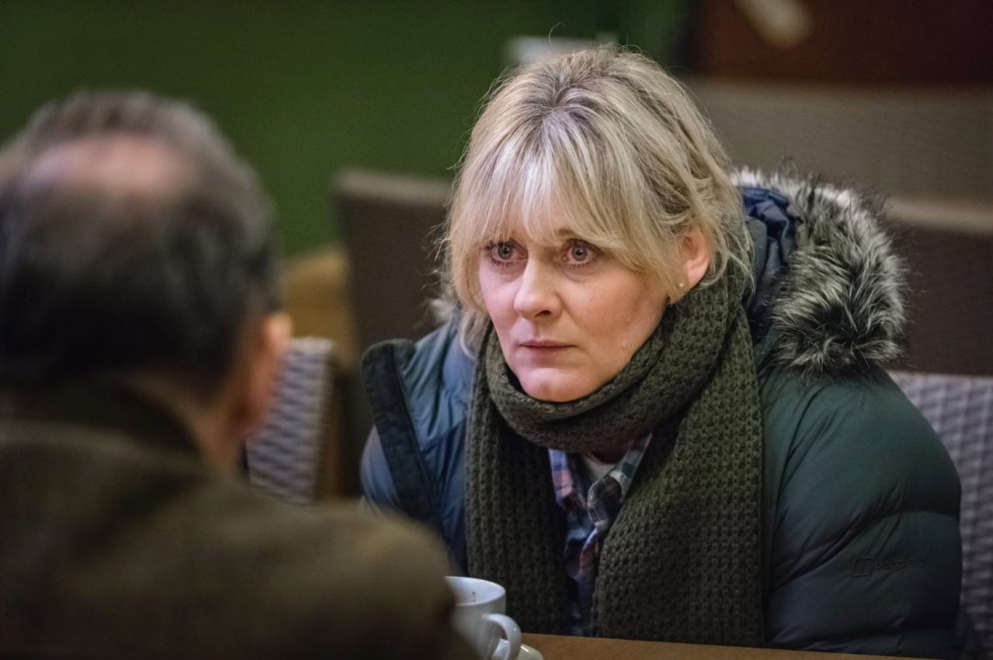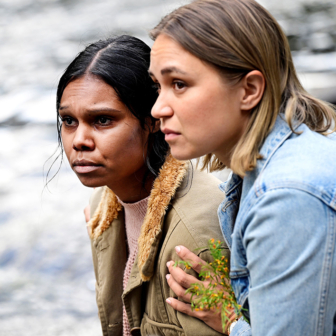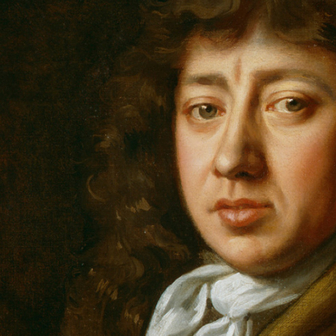Judging by some of the most successful British television exports – The Antiques Road Show, Downton Abbey, QI, Midsomer Murders – all the stereotypes of middle England remain firmly in place. Its inhabitants keep pretty gardens but live in suffocatingly awful houses surrounded by a clutter of weird objects passed down in the family. They have a naughty sense of humour, these people, and though they occasionally go so far as to murder each other, they generally specialise in suppressing their hostilities, or unleashing them in entertaining forms of rudeness.
But if you pan out from middle England to the British Isles, rather as Tolkien did when he moved from the Shire to the wilder reaches of forest and mountain country, the dramas get rougher and stranger. Think Vikings, or Game of Thrones. Here is a region of savage warring peoples, assailed by wild weathers and divided by cruel seas.
The Brexit crisis of the past week is a reminder that the British remain a loose and far-flung collection of tribes. Cries of “What have they done now?” are ringing around the world, as the civilised denizens of England look in horror upon the work of the barbarians. When barbarians wreak havoc, they know no boundaries. Havoc has a momentum of its own, and as Nigel Farage declared, Brexit let slip the dogs of war. One half of Britain, it seems, now hates the other. It’s an open declaration.
So who are these people, that they should make so much racket, with such international reverberations, from their tiny archipelago in the North Atlantic? They’re boat people from way back, and haven’t they always been a cause of trouble, whether in long boats, tall ships, gunboats or luxury yachts? By their own admission, they can’t even walk straight. For the cover of a Brexit issue of the New Yorker, Barry Blitt drew a line of bowler-hatted London gents silly-walking off the edge of a cliff.
But however we see them from our part of the world – and many of us here are carriers of the DNA – it would be naive to assume that only half of them are mad, or that if only half of them are mad, it’s the half that voted Leave. To celebrate the furore of Brexit, let’s look at three television portrayals of British madness: one from amid the heartlands of the Leave camp, one featuring the cosmopolitan elite in the billionaire playgrounds of Europe, and one from the lunatic epicentre of the BBC itself.
The area of Calderdale, near Halifax, known ironically as “Happy Valley,” gained notoriety for its drug problem, and judging by reports in the Halifax Courier it’s not getting any happier. In the lead-up to the referendum, the Leave campaign warned residents that by 2030 they’d be needing seven new prisons to cope with migrant criminals. Last week the locals voted by a majority of 11 per cent to leave the European Union. These are not the City of London crazies depicted by the New Yorker: the demographics of that image could not be more wrong. Leave voters were, by and large, the downtrodden, the aged, and those living north of the Trent.
Season 1 of Happy Valley (BBC One) starts with sergeant Catherine Cawood trying to talk down a teenager threatening to douse himself in petrol on the climbing frame in the local playground. “I’m Catherine by the way. I’m forty-seven, I’m divorced, I live with my sister who’s a recovering heroine addict, I’ve two grown-up children – one dead and one who doesn’t speak to me – and a grandson.” The facts are reeled out tonelessly, like items on a grocery list. No one does sympathy much around here. Catherine succeeds in staving off the suicide, but it’s one of her easier cases in an unfolding sequence of events that force her to confront the man who raped her daughter, with a roll-out of further tragic consequences.
Sarah Lancashire, who stars as Catherine Cawood, said the role presented one of the greatest challenges she had faced. Grim as it is, Happy Valley has already spawned a follow-up season, and a third is under contract. Its success is widely attributed to Lancashire’s deeply committed performance. There are two sides to effective television acting – one is the work of the actor and the other is the process of capturing the performance on camera. Lancashire expresses such a complex weave of tensions in her face and voice, and the rhythms of her speech are so varied and unpredictable, that a corresponding adroitness is called for in the editing and camera work. There’s an extended shot of her just leaning against a police car, face blank, after a prolonged tussle to get a suspect into the back seat. Sometimes blankness is what it’s about, and we’re with her every second of the way.
James Norton, who plays rapist and kidnapper Tommy Lee Royce, Cawood’s nemesis in both series, has spoken about the difficulties of taking on the role of a psychopath. “Every action – what we see as horrific action – in his eyes is justified. Even more than that, it’s actually necessary, because the world is a hostile place.” Some places are more hostile than others, and more susceptible to that kind of logic. The defensive impulses associated with paranoid thinking are easy to induce in a society or community, given the right preconditions.
Against the bleak landscape and bitter weather, the towns of the Calder valley huddle in on themselves, fostering the toxic social dynamics that often erupt in violence. The “seven new prisons” scare drummed up in the Halifax Courier was a beat-up, though nothing new for the Courier, which in previous months had been running with a story claiming that the children of Muslim refugees were engaging in violent forms of school bullying.
Not all the preconditions for Brexit, of course, were local. As Yanis Varoufakis summarises it, “Leave won because too many British voters identified the EU with authoritarianism, irrationality and contempt for parliamentary democracy.” And, one might add, the free-wheelings and dealings of the billionaire class. The Night Manager, a joint BBC/AMC production of John le Carré’s novel, shows how the 1 per cent really live, aided and abetted by international hotel systems, banking syndicates and corrupt government regimes. Richard Roper (Hugh Laurie) is an arms trader who makes drop-in visits to luxury hotels – the perfectly discreet venues for his meetings. When he’s not doing business, he hangs out at his villa in Majorca drinking champagne and taking joy rides in the yacht with his beautiful girlfriend, Jed (Elizabeth Debicki).
The series moves through some of the most stunning locations in Europe: a hotel looking out onto the Matterhorn in the Swiss Alps, a seventeenth-century fortress above the Bay of Pollença in Majorca, a villa cut into the rockface on the coast near Palma. Hugh Laurie as Roper captures the psychological ruthlessness of the self-made tycoon who expects to get the best of everything and the better of everyone.
The Night Manager is not one of le Carré’s better novels, but this is a superb adaptation, scripted so that the edge of tension is razor sharp in every scene. It’s impeccably cast and, of course, beautiful to look at. But as your gaze is seduced by one scenic idyll after another, there’s a vertiginous sense of what it means to live in an ethics-free zone. The madness here is not the claustrophobic paranoia of Happy Valley but the surreal lunacy of a world where rules of any kind just don’t apply.
It’s a wonder that the BBC still manages to produce any good programs, given the reign of madness it seems to be under on its home ground. “So here’s the thing with the BBC,” pronounces branding consultant Siobhan Sharpe (Jessica Hynes) in Series 1 of the satirical W1A. “Okay. Here’s what it is. The thing with the BBC is, it’s like in branding terms it’s really boring. It’s like politics, questions, investigations, Malala, whatever. What we’re talking about here is Beyond Botox…” There is no problem that Sharpe can’t address with an app, a tweet or a sonic branding coup. She’s in every meeting, responding authoritatively to every point with the entrée, “Okay. So here’s what it is guys. Here’s the thing.”
Reviewers of the widely praised series nearly always comment that they have met Siobhan Sharpe, often on a daily basis. There’s one of her in every major institution, often sitting next to someone bearing a title like Director of Strategic Governance who incessantly recites the mantra “Brilliant, brilliant. Okay. Brilliant. Very strong.” And then there is the strictly jacketed female executive with the resting bitch face who punctuates the first three words of what anyone says with a brisk “No.”
Scriptwriter John Morton scores every scene like a piece of postmodern chamber music, with each repeated word and vacuous non-expression placed to achieve an overall rhythmic pattern. From a performance point of view, it’s a tour de force. All those airheads around the table for the meeting of the Way Ahead Task Force are in another reality an ensemble of actors rehearsed to within an inch of their lives. There are strong genre parallels with the ensemble approach of the Working Dog team in ABC’s Utopia.
But here’s the thing with the BBC. As the national broadcaster – for the whole of Britain, as the task force members keep reminding each other – it is all about inclusiveness. It keeps having to catch pieces of the geographic or demographic United Kingdom that seem to have fallen off the table. Cornwall, for example. Or Wales. Old people. People of mixed race. They really don’t want to make the kind of mistake British politicians and media pundits have been making for the past several generations. No one must feel excluded, or dispossessed.
The building plays a role there. In fact, the building plays the leading role throughout, determining everything that happens. When newly appointed Head of Values Ian Fletcher (Hugh Bonneville) makes his first entry, he finds there is no office for him, and no desk. The whole place is an open-plan forest of hot desks, to which existing staff have made fierce territorial claims. Everyone is equal here. Whatever they may claim to be head of, the building controls them through its Syncopatico programming, which rivals that of Hal in 2001. The Senior Technical Services Choreographer provides briefing sessions to new staff, explaining how responses to all eventualities are preloaded into the building itself. This is not an environment in which human intelligence has the remotest chance of surviving.
The British have a virtuoso repertoire of lunatic behaviours, but as our own ordeal by ballot box looms, we should not assume we are any less prone to communal insanity, or that our collective decision-making intelligence is in any way superior. And it is not that people in general are stupid. Rather, we are stupefied. Watching good actors portray such diverse forms of human intelligence failure gives me more and more respect for the intelligence of actors themselves. The subtlety and fine-tuning that Sarah Lancashire, or Hugh Laurie, or Hugh Bonneville bring to their roles is a manifestation of an advanced form of psychological and social understanding. As we near the end of this protracted election campaign, what is driving me mad is that our politicians give such bad performances – shallow, wooden, clichéd and emotionally fake. If only we could put our entire parliamentary representation into the hands of a good casting agent, and replace it with a cast of trained actors. •




